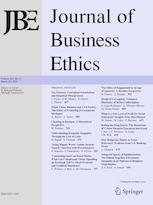|
Autors/es
Ravenda, D.; Valencia-Silva, M.; Argiles, J.; García Blandón, J.
|
Abstract
We investigate whether the geographic concentration of non-EU immigrants in the various Italian provinces affects labour tax avoidance (LTAV) practices adopted by firms located in the same provinces, as well as in the neighbouring provinces, and operating in construction and agriculture industries that mostly employ immigrants in Italy. For this purpose, we develop a LTAV proxy based on the financial accounting information of a sample of 993,606 firm-years, disseminated throughout the 108 Italian provinces, over the period 2008–2016. Our results, based on a Spatial Durbin Model panel regression, reveal a statistically significant positive association between the concentration of non-EU immigrants and LTAV at province level, as well as the presence of spillover effects among neighbouring provinces. Our findings are robust to several additional analyses, including instrumental variable estimations. Our study provides empirical support to previous structuralist or marginalization theories holding that socioeconomically marginalized groups, such as non-EU immigrants, are more likely to be involved in labour exploitation practices, which could underlie our LTAV outcomes. Furthermore, it supports the need for tax authorities to strengthen labour inspections, coordinated at national level, especially in those contexts where non-EU immigrants are mostly employed. On the other hand, a greater social integration, assistance, and recognition of rights of immigrants may help to alleviate their situation of weakness that makes them more vulnerable to LTAV practices. Finally, tackling LTAV, associated with the underemployment of immigrants, may prevent its negative effects for society arising from the reduction of public resources to sustain the social welfare and finance public goods and services.
|

WoS
Scopus
Altmetrics
 
|
